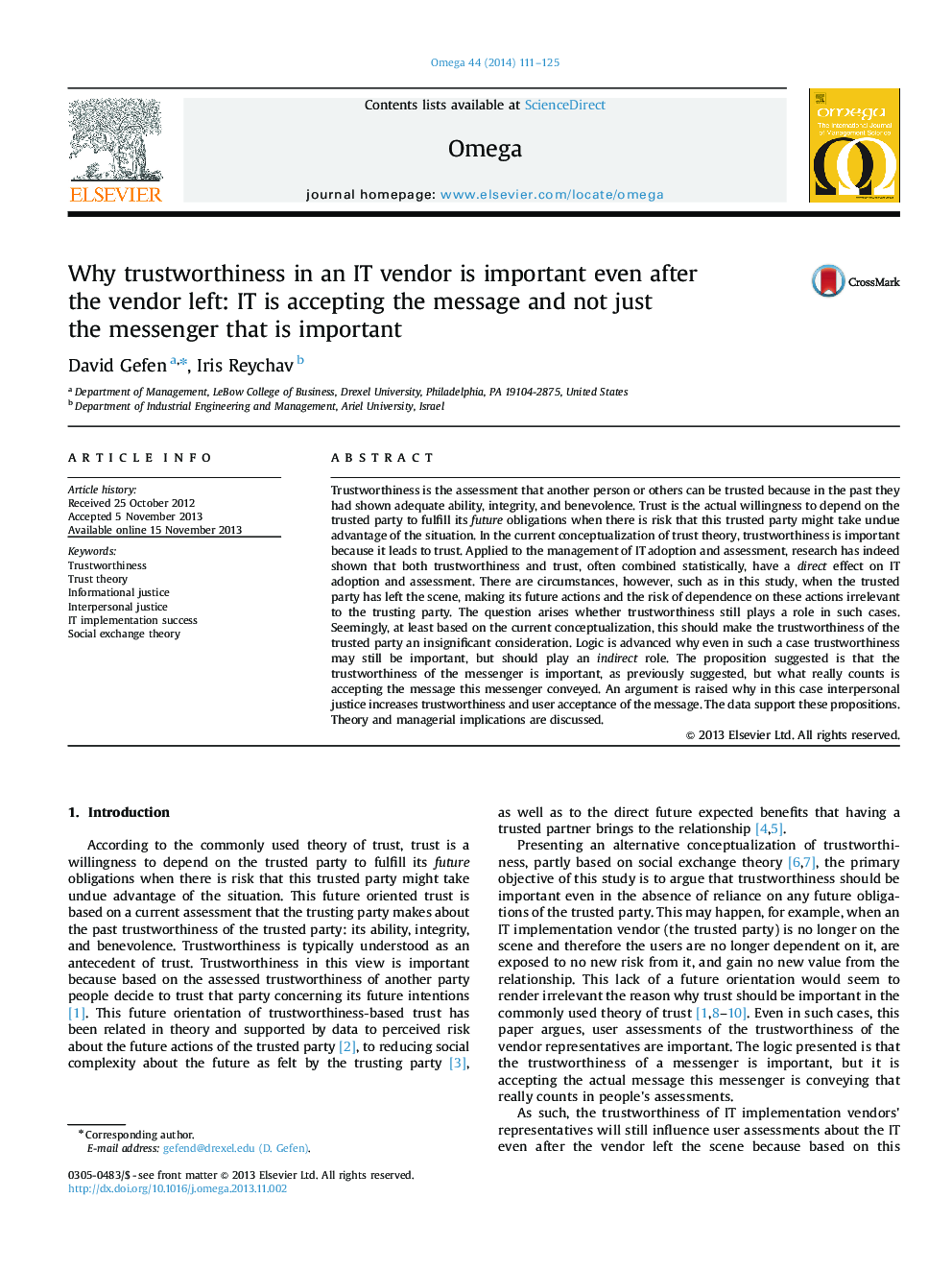| Article ID | Journal | Published Year | Pages | File Type |
|---|---|---|---|---|
| 1032579 | Omega | 2014 | 15 Pages |
•Expanding current trust theory, this study shows that vendor trustworthiness is important even after the vendor has no future obligation.•Extending theory, the study shows that vendor trustworthiness has not only future oriented effects but relates to the past too.•Past informational justice by the vendor builds assessments of its current trustworthiness after the vendor has no future obligation.•Apparently, it is the message, rather than the messenger, that builds perceived success after the vendor has no future obligation.
Trustworthiness is the assessment that another person or others can be trusted because in the past they had shown adequate ability, integrity, and benevolence. Trust is the actual willingness to depend on the trusted party to fulfill its future obligations when there is risk that this trusted party might take undue advantage of the situation. In the current conceptualization of trust theory, trustworthiness is important because it leads to trust. Applied to the management of IT adoption and assessment, research has indeed shown that both trustworthiness and trust, often combined statistically, have a direct effect on IT adoption and assessment. There are circumstances, however, such as in this study, when the trusted party has left the scene, making its future actions and the risk of dependence on these actions irrelevant to the trusting party. The question arises whether trustworthiness still plays a role in such cases. Seemingly, at least based on the current conceptualization, this should make the trustworthiness of the trusted party an insignificant consideration. Logic is advanced why even in such a case trustworthiness may still be important, but should play an indirect role. The proposition suggested is that the trustworthiness of the messenger is important, as previously suggested, but what really counts is accepting the message this messenger conveyed. An argument is raised why in this case interpersonal justice increases trustworthiness and user acceptance of the message. The data support these propositions. Theory and managerial implications are discussed.
